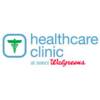Book an STD Test in Cudahy, WI
Own a clinic? Add your location.
Help patients book appointments with you on Solv. It's free!
11 instant-book locations

Quest Diagnostics
Quest Diagnostics
Self-pay pricing
Clear self-pay prices
No more surprise bills. Solv is committed to making getting healthcare as easy as buying groceries at the store, including knowing the price of care upfront.

Self-pay pricing
Clear self-pay prices
No more surprise bills. Solv is committed to making getting healthcare as easy as buying groceries at the store, including knowing the price of care upfront.

Self-pay pricing
Clear self-pay prices
No more surprise bills. Solv is committed to making getting healthcare as easy as buying groceries at the store, including knowing the price of care upfront.

Labcorp, West Allis
Labcorp
Self-pay pricing
Clear self-pay prices
No more surprise bills. Solv is committed to making getting healthcare as easy as buying groceries at the store, including knowing the price of care upfront.

Self-pay pricing
Clear self-pay prices
No more surprise bills. Solv is committed to making getting healthcare as easy as buying groceries at the store, including knowing the price of care upfront.

Self-pay pricing
Clear self-pay prices
No more surprise bills. Solv is committed to making getting healthcare as easy as buying groceries at the store, including knowing the price of care upfront.

Labcorp at Walgreens
Labcorp at Walgreens
Self-pay pricing
Clear self-pay prices
No more surprise bills. Solv is committed to making getting healthcare as easy as buying groceries at the store, including knowing the price of care upfront.

Quest Diagnostics
Quest Diagnostics
Self-pay pricing
Clear self-pay prices
No more surprise bills. Solv is committed to making getting healthcare as easy as buying groceries at the store, including knowing the price of care upfront.

Self-pay pricing
Clear self-pay prices
No more surprise bills. Solv is committed to making getting healthcare as easy as buying groceries at the store, including knowing the price of care upfront.

Labcorp
Labcorp
Self-pay pricing
Clear self-pay prices
No more surprise bills. Solv is committed to making getting healthcare as easy as buying groceries at the store, including knowing the price of care upfront.

Quest Diagnostics
Quest Diagnostics
Self-pay pricing
Clear self-pay prices
No more surprise bills. Solv is committed to making getting healthcare as easy as buying groceries at the store, including knowing the price of care upfront.

Concentra Urgent Care, Airport Milwaukee
Concentra Urgent Care
Concentra Urgent Care, Layton Square
Concentra Urgent Care

Wisconsin Diagnostic Laboratories, Layton
Wisconsin Diagnostic Laboratories
Sixteenth Street Community Health Centers
Sixteenth Street Community Health Centers
South Milwaukee Urgent Care
South Milwaukee Urgent Care
Sixteenth Street Community Health Centers, 16th Street
Sixteenth Street Community Health Centers
HouseCall Healthcare, Mobile Urgent Care
HouseCall Healthcare
Aurora Urgent Care, Van Buren, Milwaukee
Aurora Urgent Care
Own a clinic? Add your location.
Help patients book appointments with you on Solv. It's free!
Overview of STD Testing in Cudahy
Who should get tested for STDs?
Anyone who is sexually active should consider getting tested for STDs, especially those with multiple sexual partners or those who do not regularly use condoms. It's also important for individuals who share drug paraphernalia, as some STDs can be transmitted through shared needles. Testing is also recommended for pregnant women, as untreated STDs can have serious health effects for both the mother and baby.
Importance of getting tested
Getting tested for STDs is crucial for maintaining good sexual health. Many STDs do not show symptoms in their early stages, making regular testing the only sure way to know your status. Early detection can prevent the spread of the disease to partners and allow for timely treatment, reducing the risk of long-term health complications. According to the CDC, untreated STDs can lead to severe health problems such as infertility, cancer, and organ damage.
Std testing options in Cudahy, WI:
Urgent care and walk-in clinics
Urgent care centers such as Popcare in Franklin, WI, and AFC Urgent Care in Waukesha, WI, offer STD testing services. These facilities usually provide same-day appointments, making it convenient for individuals with busy schedules. It's also possible to book appointments at these centers through Solv’s website and mobile app.
Primary care providers
Your primary care provider can also perform STD testing. This can be a comfortable option for many, as it involves a healthcare provider you are familiar with. If needed, they can also provide treatment or refer you to a specialist.
Free STD testing and community health centers
For those with financial constraints, free STD testing may be available at community health centers in and around Cudahy. It's important to check with the specific center for their testing schedule and requirements.
At-home testing
At-home testing kits are another option for those who prefer privacy. These kits can be ordered online and come with instructions for collecting a sample, which is then sent to a lab for testing.
Prevalence of STDs in Cudahy
Cudahy, located in Milwaukee County, has seen a rise in STD cases over the years, mirroring the national trend. According to the CDC, the most commonly reported STDs in the area are chlamydia, gonorrhea, and syphilis. The rate of these infections is higher than in nearby counties such as Fulton, Williams, Clinton, Cass, and Porter.
Risk factors related to STDs in Cudahy
Several factors contribute to the high prevalence of STDs in Cudahy. These include high rates of unprotected sex, multiple sexual partners, and substance abuse. Additionally, lack of awareness about STDs and their transmission, as well as limited access to preventive services and testing, also play a role. Efforts to increase education about STDs, promote safe sex practices, and improve access to testing and treatment services are crucial in addressing this public health issue.
Solv has strict sourcing guidelines and relies on peer-reviewed studies, academic research institutions, and medical associations. We avoid using tertiary references.
STD Testing FAQs
Where should I get an STD test in Cudahy?
In a doctor's office, a health clinic, or an urgent care center, you can get an STD test. If you're experiencing symptoms, it's best to visit a doctor's office, where they can also treat you or issue you a prescription. While some Cudahy clinics and urgent care centers allow walk-in appointments, it's advisable to make an appointment ahead of time to prevent excessive waits.
How long does it take to get STD test results?
Various testing are required for various STDs. Depending on the type of STD test you took, you may receive your results in two to ten days. Some outcomes may be immediately available. Your doctor may be able to diagnose an STD through a physical examination. In some cases, your doctor's office may only contact you if your test results are positive.
How much does an STD test cost in Cudahy?
The cost of STD testing is governed by several factors, including where you are tested, the type of test you need, and if you have health insurance. Some Cudahy clinics may offer free testing or testing on a sliding scale based on your income. Because of the cost, don't put off obtaining an STD test. With your doctor's office, discuss the cost and payment choices. Delaying STD treatment may have catastrophic implications.
Does insurance cover STD testing in Cudahy?
The cost of STD testing is governed by a number of factors, including the location of the test, the type of test required, and whether or not you have health insurance. Some clinics may provide free or sliding-scale testing, depending on your income. Don't let the expense of an STD test deter you from getting one. With your doctor's office, discuss the price and payment choices. Delaying STD treatment could have catastrophic ramifications.
How do they test for STDs in Cudahy?
There are around 20 different forms of STDs, each with its own set of diagnostic tests. No single test exists that can detect all types of STDs. Your doctor can help you figure out which tests you'll need. In STD testing, a blood sample or a urine sample may be used. Your doctor may also take a swab from the inside of your cheek, your vaginal area, or another potentially infected place.
What STDs can be detected by a blood test?
Blood tests are used to diagnose hepatitis B, hepatitis C, herpes, HIV, and syphilis. In a laboratory, a technician examines a blood sample for antibodies that the body has produced in reaction to disease. The virus's DNA can also be detected by several blood tests. Remember that if you've recently been exposed to an STD and your body hasn't yet produced antibodies, you could test negative even if you have the disease.
Can I get a same-day appointment for STD testing in Cudahy?
Many Cudahy, WI urgent care providers offer same-day and next-day appointments, which you may book through Solv. To make healthcare more accessible to everyone, we collaborate with thousands of top-rated local providers. Our physician partners understand that waiting days, if not weeks, for an appointment isn't always the best option, and they share our commitment to simple, accessible health care.
How can I book an STD test on Solv?
To find a healthcare practitioner in your area, simply enter your location and search for "STD test" on our website. A list of providers and available appointments can be found on the following page. Choose the most convenient time and location for you. Make it clear that you've come for STD testing.
How long does an STD test take in Cudahy?
If you have a specific STD, inform your doctor so that the necessary test can be scheduled. Otherwise, they'll help you figure out which tests you'll need. The nurse or doctor simply needs a few minutes to get a blood sample, a urine sample, or a swab from the probable infection site.
Can I test myself for STDs at home?
Although there are several STD home tests available, not all of them are accurate. The accuracy of any STD test is determined by the quality of the sample taken. For home STD kits, a blood sample, a urine sample, or both are frequently required. Because doctors and nurses have more experience collecting samples, traditional in-office STD testing is the most accurate.
Related Searches
A1C Test in Cudahy
Allergy Testing in Cudahy
Basic Metabolic Panel in Cudahy
Blood Test in Cudahy
CMP Test in Cudahy
COVID-19 Pill in Cudahy
COVID-19 Testing in Cudahy
Cholesterol Test in Cudahy
DNA Test in Cudahy
Dermatologists in Cudahy
Diabetes Test in Cudahy
Diagnostic Test in Cudahy
Drug Test in Cudahy
Ear Wax Removal in Cudahy
Flu Test in Cudahy
Glucose Test in Cudahy
H Pylori Test in Cudahy
Hepatitis test in Cudahy
Lab Tests in Cudahy
Mono Test in Cudahy
Pediatric Urgent Care in Cudahy
Pregnancy Test in Cudahy
Pulmonary Function Test in Cudahy
RSV Test in Cudahy
Retail Clinic in Cudahy
Sports Physicals in Cudahy
Strep Test in Cudahy
TB Test in Cudahy
Thyroid Test in Cudahy
Urgent Care in Cudahy
Urinalysis in Cudahy
Vitamin D Test in Cudahy
Aetna Urgent Care
Blue Cross Blue Shield Urgent Care
Cigna Urgent Care
COVID-19
Flu
United Health Urgent Care
» All services in CudahyFind STD testing
Nearby cities
Everyday Healthcare, Simplified
Expert advice to help you live your best life







